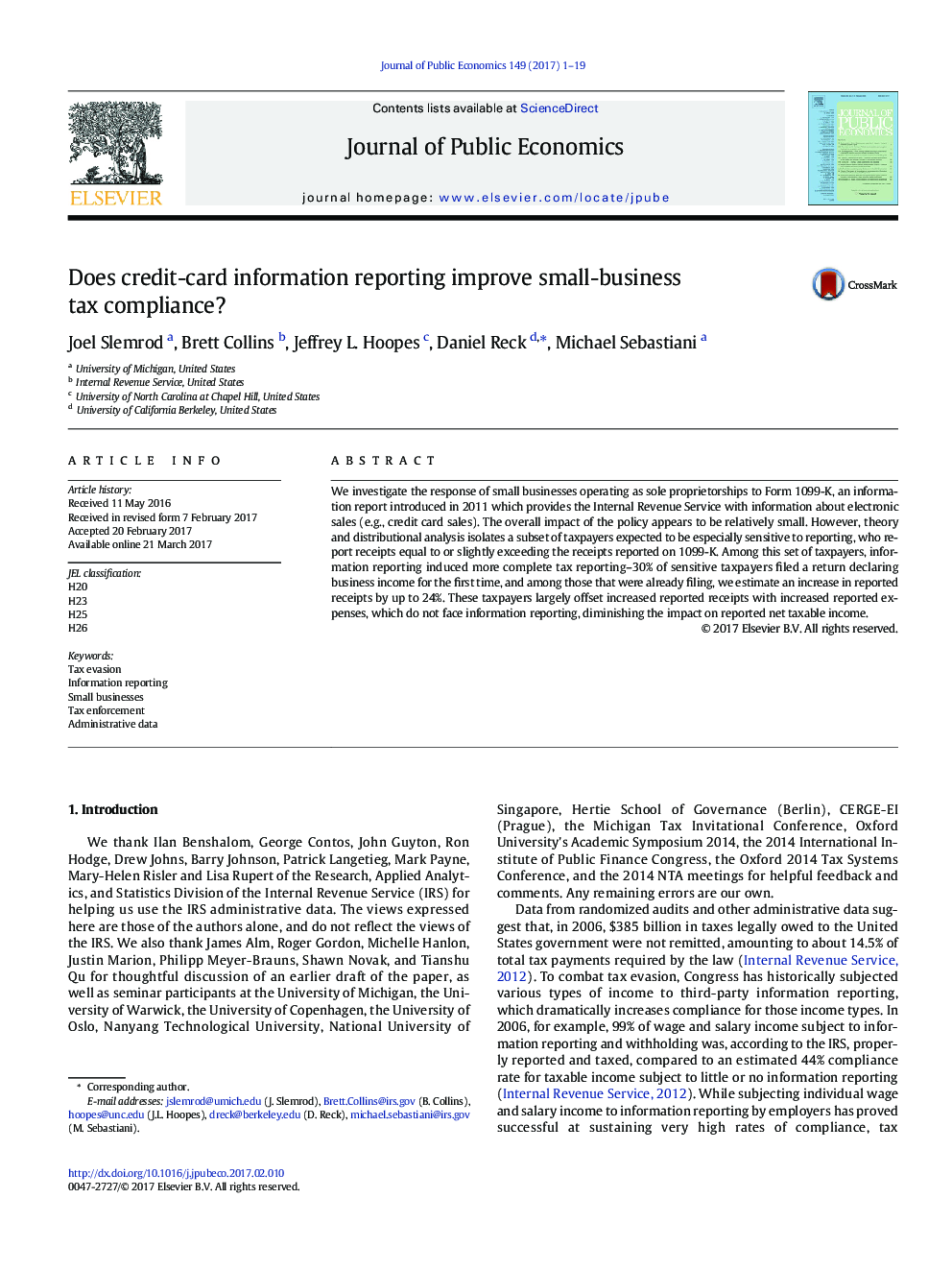| Article ID | Journal | Published Year | Pages | File Type |
|---|---|---|---|---|
| 5101814 | Journal of Public Economics | 2017 | 19 Pages |
Abstract
We investigate the response of small businesses operating as sole proprietorships to Form 1099-K, an information report introduced in 2011 which provides the Internal Revenue Service with information about electronic sales (e.g., credit card sales). The overall impact of the policy appears to be relatively small. However, theory and distributional analysis isolates a subset of taxpayers expected to be especially sensitive to reporting, who report receipts equal to or slightly exceeding the receipts reported on 1099-K. Among this set of taxpayers, information reporting induced more complete tax reporting-30% of sensitive taxpayers filed a return declaring business income for the first time, and among those that were already filing, we estimate an increase in reported receipts by up to 24%. These taxpayers largely offset increased reported receipts with increased reported expenses, which do not face information reporting, diminishing the impact on reported net taxable income.
Keywords
Related Topics
Social Sciences and Humanities
Economics, Econometrics and Finance
Economics and Econometrics
Authors
Joel Slemrod, Brett Collins, Jeffrey L. Hoopes, Daniel Reck, Michael Sebastiani,
